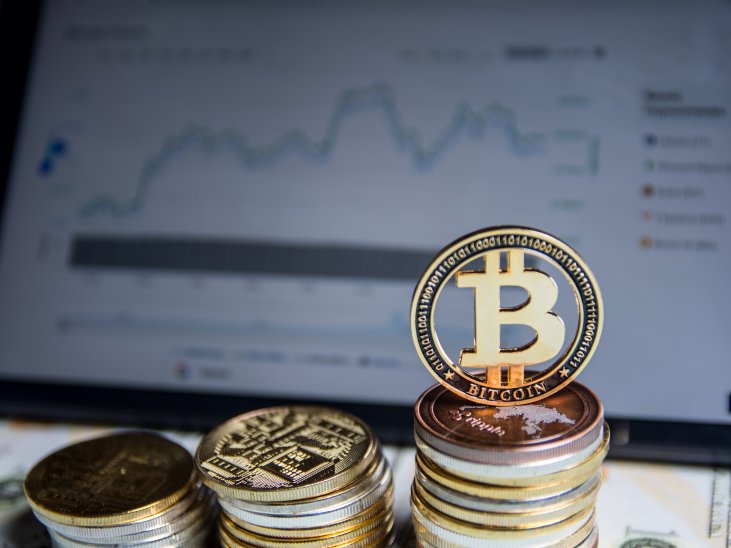Digital Sustainability: What Is It and Why Does it Matter?

Meeco is a tech company from Australia with operations in Europe, and co-founder of the Data Sovereignty Now campaign. The company’s products are used by data custodians to give users control over their data. We asked Katryna Dow, founder and CEO of Meeco, to share her views on digital sustainability.
Making the data owners directly part of the digital sustainability value chain always leads to better mutual outcomes
What does digital sustainability mean for your company?
Data is so powerful because it holds the key to better decision-making and trust building. And we are all contributing to the collection of data every day, often without realising it. But without having access to that data, or if it is being monetised without our consent, the value is being created but we are not directly or fairly benefiting from it.
There are strong links to data sovereignty here – give people and organisations access to and control over their data so that they can make better decisions and more trustworthy relations. Additionally, it’s also about getting a fair share of the ‘data benefit balance’. We call this digital equity – but importantly, equity doesn’t necessarily imply a monetary value. Equity is about transparency and about ensuring that people and businesses understand the trade-off they engage in, when in return for their data they are provided with access to services or product offers. And increasingly, it’s about ensuring that everyone is aware that there are viable alternatives to the non-explicit trade-off that a few large technology platforms have helped us become accustomed to. Most recently, consumers have voted with their feet (or rather with their fingers and screens) and have started to reject this trade-off as it becomes more explicit.
Digital sustainability is about generating long-term value, transparency and equity for both parties. Most data is currently held by individual organisations – from governments to insurance companies, from airlines to retailers, and from restaurants to nail salons. It’s time to put that data back into the hands of customers rather than locking it away in all those separate databases and platforms. In addition to making it easier for customers to control their data, it would also enable them re-use it for a whole range of different purposes – whether that’s for travel, insurance, enrolling their child at school, managing their credit rating or arranging a mortgage.
So digital sustainability is actually very much like ‘regular’ sustainability; it cuts down on waste and reduces ‘data pollution’ by avoiding over-collection and data proliferation.
What should be considered when thinking about digital sustainability?
From an organisation’s viewpoint, the minute you take your physical operation and make it digital – when you move into what has become known as the ‘phygital’ world – it presents a whole range of new considerations such as security and data privacy. Increasingly, and thanks in part to data privacy regimes and data breach penalties, organisations understand that collecting customer data comes with significant responsibility. Digital sustainability gives them the tools to build in ‘privacy by design’ and ‘security by design’. It enables them to provide customers with the benefits of convenience, without compromising on transparency and equity. Ideally, data sustainabilty should be supported by solid regulatory frameworks. And if we’re talking about ‘recycling’ data in order to minimise over-collection and maximise its value, then we need to ensure that the data remains accurate and is reusable. The key to this lies in reliable verification of the credentials – such as a driver’s licence, passport, employment records – in a cryptographically secure manner.
But how can we build a network of trust that not only enables the data source to protect and manage the data, but also enables other parties in the ecosystem to access, use and share that data in a secure and trusted way? This requires what we often refer to as a ‘soft’ infrastructure for data, which is similar to the ‘hard’ infrastructure that we’re all familiar with such as roads, railways, data centers and cables. As a data owner, this soft infrastructure enables you to rely on your data rights and privacy, and manage access by giving permission for how, when, why and by whom your data may be used. This is what’s needed to provide the right foundation for digital sustainability.
What is the current state of play in terms of the shift to digital sustainability?
The lines between our physical self and digital self are becoming increasingly blurred; in today’s ‘phygital’ world, almost everyone and everything has a ‘digital twin’. The latter is scattered over many different service provider, who all have ‘a part of you’.
Technologies such as distributed ledger, personal clouds, mobile technology, artificial intelligence and the Internet of Things have converged with regulations such as Open Banking, the GDPR and new Data Governance Act. Moreover, there is growing awareness among consumers about privacy issues and the misuse of data and, increasingly, people will expect to receive a fair share of the digital equity.
The concepts of Web 3.0 and the metaverse may feel distant and academic for many of us but, through popular games such as Minecraft and Roblox, today’s youngsters are already completely immersed in an online world of tokens, incentives, bartering and trading. It’s an imaginary world, but they are already exercising some of their data rights and influence.
They’re also learning about fraud, theft and cybersecurity the hard way, so they are becoming very digitally sophisticated – and many members of this generation will become adults within the next decade! As they shift from the digital world to the physical world, they will expect service providers in banking, mobility, learning and other aspects of life to offer them an equally great digital experience, while also taking account of their rights. So, this will have huge implications for business models sooner than we realise.
In terms of momentum and expectations, we cannot ignore the coronavirus pandemic which, according to a 2020 report by McKinsey, has accelerated digital adoption by seven years. In the health sector, for example, the COVID-19 outbreak accelerated the move to telemedicine, digitalisation, and data sovereignty – and is rapidly filtering down to GP level. So, all of these aspects are creating a ‘perfect storm’ that makes digital sustainability both possible and necessary, and the legislative situation is now starting to catch up.
In terms of the current status, this varies in different parts of the world and in different sectors. For example, the EU has the Data Strategy and nine data spaces for specific industries, such as health, mobility, agriculture, energy and so on. The financial services sector was already a step ahead due to Open Banking regulations.
In Australia, the Consumer Data Right Act is like the EU Data Strategy. While it will eventually be economy-wide, it currently covers three sectors: banking, telecoms and utilities. In North America, while the market is much more fragmented, there are various examples of companies working together and creating momentum in specific industries in which it’s relevant to have access to things like credit records, for instance.
All the factors I just mentioned, plus the efforts of the Digital Sovereignty Now campaign, make it easier to have meaningful conversations about digital sustainability with governments and organisations. I’m not sure that we’re at the tipping point yet but we’re definitely a lot closer; people are definitely starting to understand the need, the value and the urgency.
Which indicators can be used in conjunction with digital sustainability?
One of the very important takeaways from the first Data Sovereignty Now Monitor report is that lots of organisations and service providers are now aware of the need for digital sustainability, but don’t know how they can adapt their business models accordingly. In this context, it comes back to digital equity again, and the understanding that – while business models are obviously important – there are also other byproducts of value. For example, we did a pilot with an employer in Queensland, Australia, to monitor the business value of remote employee onboarding. By enabling employees to use a decentralised wallet to prove their identity remotely using verifiable credentials such as a driver’s licence, the overall onboarding process was reduced from three days to just 30 minutes, generating huge value for the employer in terms of efficiency gains. Additionally, the employee waiting time was reduced from 48 hours to 30 minutes, so the employees benefited from greater convenience and time-saving. Making the data owners – whether they are employees, patients, students, consumers or citizens – directly part of the value chain always leads to better mutual outcomes. So, when thinking of indicators, it’s important to measure digital sustainability in terms of other types of value, besides just financial.
How does your company put digital sustainability into practice?
At Meeco, we build enterprise tools that data custodians deploy to enable their customers to access, control and securely exchange personal data. Our platform of integrated tools is built on open standards. Made by developers for developers, our tools are used across a range of sectors, including finance, identity, multimedia content and life management in general. In addition to the employee onboarding solution I mentioned, another example is the digital vault inside Belgian bank KBC’s mobile app, which is powered by Meeco. We also provide a platform for financial and wealth management organisations and a ‘privacy and security by design’ app offered by a partner called My Life Capsule, which makes family administration and connection easier across multiple generations. And with the privacy of the youngest generation in mind, we developed and co-designed mIKs-it: a safe multimedia app for children and their trusted grown-ups to safely connect to daily life through photos, videos and audio, always with complete privacy.
All of these solutions enable data to be created, collected, verified and/or reused in a data-sovereign way to create mutual value and support long-term success, which – in a nutshell – is what digital sustainability is all about.




